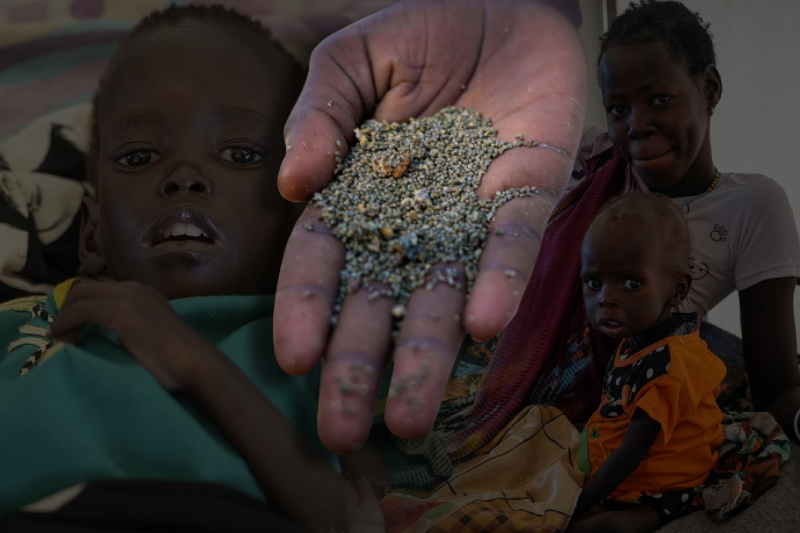

South Sudan to face hungriest year


36 year old Nyayiar Kuol shares her story while cradling her 1 year old daughter, who is severely malnourished. Living in rural South Sudan, Kuol has to travel 16 hours to nearest hospital. Kuol hasn’t been able to feed her four children all meals in a day, surviving on just one meal a day. Failed crops, no food assistance. The factors that have brought Kuol to a stage where she thinks her daughter might die. Blaming government for failing to do what’s needed for people, she said, “I don’t want to think about what could happen.” She added, “If this country was really at peace, there wouldn’t be hunger like there is now.”
Aid groups have warned that this year would be the most catastrophic for South Sudan – more people will die. Famine due to worst floods that have hit the country in 60 years, internal civil conflict, and delayed implementation of peace deal has denied the country with its basic aid and people the basic human rights. “2021 was the worst year since independence in the 10 years of the life of this country and 2022 will be worse. Food insecurity is at horrific levels,” said Matthew Hollingworth, country representative for the World Food Program in South Sudan.
Aid officials have noted that preliminary data shows nearly 8.5 million people, out of the South Sudan’s 12 million population, are predicted to face severe hunger. This would be an 8% increase as compared from last year.
Floods have impacted at least 1 million people across the country, said United Nations. Last year UN had to decrease its food ais to South Sudan by half due to inadequate funding. This further impacted around 3 million. Disastrous two years due to floods have prevented cultivation. According to UN Food and Agriculture Organization, at least 250,000 livestock has been killed in Jonglei state of South Sudan alone.
Floods and famine have forced internal displacement of scores of people. “We’re eating leaves and look like skeletons,” Tut Jaknyang, the 60-year-old who has received food assistance only once since leaving Jonglei in July to flee floods.
Jill Seaman, who works in Old Fangak with the South Sudan Medical Relief concludes in frustration over condition of South Sudan, “There are no resources, no harvest, and no cows, there’s no place to look for food.”
The Communications Ministry of Indonesia seeks to develop a public endowment fund, which would strengthen independent journalism across the country…
Radio Free Asia (RFA), a U.S. government-funded news network that broadcasts in nine Asian languages, has virtually fired everyone in…
The Trump government revealed its intent in action to consider layoffs on a grand scale, under which agencies of the…
The Trump administration has launched a sweeping initiative to monitor around 450,000 unaccompanied migrant children who were placed during the…
During the May half-term Gatwick Airport could experience delays because workers from two different groups plan to strike about pension…
A serious injury at a construction site has netted a 49-year-old union worker a $5 million settlement. The attorneys Kenneth…
This website uses cookies.
Read More